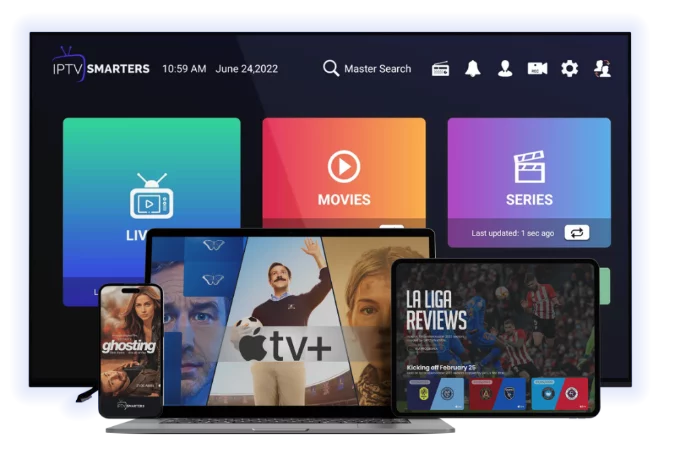As streaming platforms continue to grow in popularity and offer more high-definition and 4K content, ensuring a seamless, high-quality experience for viewers is becoming increasingly complex. One technology that is helping platforms like IPTV EVER improve streaming performance is edge computing. By bringing processing power closer to the end-user, edge computing reduces latency and improves the overall user experience. In this article, we’ll explore how IPTV EVER is leveraging edge computing to enhance streaming performance and provide users with a better viewing experience.
What is Edge Computing and Why is It Important for Streaming?
Edge computing refers to the practice of processing data closer to the location where it is being used, rather than relying solely on centralized cloud servers. By distributing the computing power to the “edge” of the network, closer to the user, edge computing reduces the time it takes for data to travel, improving latency and speeding up data processing. This is especially important for streaming platforms like IPTV EVER, where high-speed data transfer and low latency are crucial for delivering high-quality content without buffering or delays.
For IPTV EVER, edge computing allows for faster video streaming, more responsive user interfaces, and an overall enhanced experience for viewers, especially during peak traffic periods or in regions with slower internet speeds.
How IPTV EVER is Leveraging Edge Computing for Better Streaming
1. Reducing Latency for Real-Time Content
One of the main benefits of edge computing is its ability to reduce latency, which is the delay between the user’s request and the delivery of content. IPTV EVER leverages edge computing to ensure that videos and live streams are delivered faster and with minimal buffering. This is particularly important for live events, such as sports games or concerts, where real-time streaming is essential for an engaging experience.
By processing data closer to the viewer’s device, IPTV EVER minimizes the amount of time it takes for content to travel across the network, ensuring smooth and uninterrupted streaming.
2. Improved Quality of Service (QoS) During Peak Usage
Streaming platforms often face significant challenges during peak usage times when large numbers of users access the service simultaneously. This can lead to network congestion, buffering, and degraded video quality. Edge computing helps IPTV EVER overcome these challenges by distributing traffic more efficiently across its network.
By using edge servers located in different geographic regions, IPTV EVER can balance traffic load and reduce strain on its central servers. This ensures that users experience consistent video quality and smooth streaming, even during periods of high demand.
3. Faster Video Load Times and Seamless Playback
With edge computing, IPTV EVER reduces the time it takes for video content to load. Data is cached at the edge of the network, allowing for faster retrieval and playback of videos. As a result, viewers don’t have to wait as long for their content to buffer, leading to a smoother and more enjoyable viewing experience.
Whether a viewer is watching a 4K movie or streaming a live broadcast, edge computing ensures that content loads quickly and plays without interruptions.
4. Optimizing Video Delivery Based on User Location
Edge computing also enables IPTV EVER to optimize video delivery based on the user’s geographic location. When users request content, edge servers closer to their region can quickly deliver the video stream, reducing the distance data needs to travel and ensuring faster delivery. This localized approach improves streaming speed and reduces latency, particularly for viewers in remote or underserved areas.
For instance, users in different regions may experience different video quality levels based on the nearest edge server. IPTV EVER can adapt its content delivery based on these factors, providing the best possible experience for each user.
5. Support for High-Definition and 4K Content
Streaming high-definition and 4K content requires significant bandwidth and processing power. Edge computing helps IPTV EVER deliver these high-quality streams more efficiently by offloading processing tasks to edge servers. With edge computing, IPTV EVER can handle the increased data load required for high-definition video without sacrificing performance.
This capability is crucial for IPTV EVER as it continues to offer 4K and even 8K content to its users. By using edge computing, the platform can ensure that users enjoy high-quality video without experiencing buffering or slow loading times.
6. Improving Interactive and Real-Time Features
Interactive content, such as live voting, real-time commentary, and social media integration, is becoming increasingly popular in streaming. These features require low latency and fast data processing to function effectively. Edge computing allows IPTV EVER to offer interactive experiences during live events with minimal delay.
For example, during a live sports event, viewers can participate in real-time polls or comment on the game without experiencing lag. Edge computing ensures that these interactive features are responsive and work seamlessly alongside the live video feed.
Conclusion: Edge Computing is Enhancing IPTV EVER’s Streaming Experience
Edge computing is playing a pivotal role in enhancing IPTV EVER’s streaming performance by reducing latency, improving video load times, optimizing content delivery, and supporting high-definition content. By processing data closer to the user, IPTV EVER can offer a smoother and more reliable streaming experience, even during peak usage times or in areas with slower internet speeds. As IPTV EVER continues to innovate and expand its services, edge computing will remain a key technology in delivering high-quality, real-time streaming experiences to its global audience.

